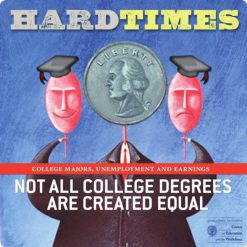The College Experience
YOUR TURN
Work Together
Talk with a classmate to discover whether college life is what each of you thought it would be. Share what you have experienced and times you have been pleasantly or unpleasantly surprised.
What is the college experience? Depending on who you are, your life circumstances, and why you decided to enroll, college can mean different things. College is often portrayed in books and films as a place where young people live away from home in ivy-covered residence halls. We frequently see college depicted as a place with a major focus on big-time sports, heavy drinking, and partying. Yes, you’ll find some of that at some colleges, but most students today don’t move away from home, don’t live on campus, and don’t see much ivy. College is really far more than any single image you might carry around in your head.
College can be defined in many ways. For starters, college is an established process designed to further formal education so that students who attend and graduate will be prepared for certain roles in society. Today, those roles are found especially in what has become known as the “information economy,” which means that most college graduates are going to be earning their living by creating, managing, and using information. Because the amount of available information expands all the time, your college classes can’t possibly teach you all you need to know for the future. The most important skill you will need to learn in college is how to keep learning throughout your life.
IN THE MEDIA

In The Media
With a 9 percent unemployment rate among college graduates, is getting that degree worth it? “Hard Times,” a January 2012 study from the Georgetown University Center on Education and the Workforce, indicates the following:
- Choice of major substantially affects employment prospects and earnings.
- People who make technology are better off than people who use technology.
- In general, majors that are linked to occupations have better employment prospects than majors focused on general skills.
Visit the complete study at http://cew.georgetown.edu/unemployment
For Reflection: Have you selected a major? If so, is your selection based on the amount of money you’re likely to earn in a related career? If you haven’t yet chosen a major field, will potential earnings affect your choice? Why or why not? Take a sneak peek at Chapter 15 to read about majors, careers, and taking your next steps.